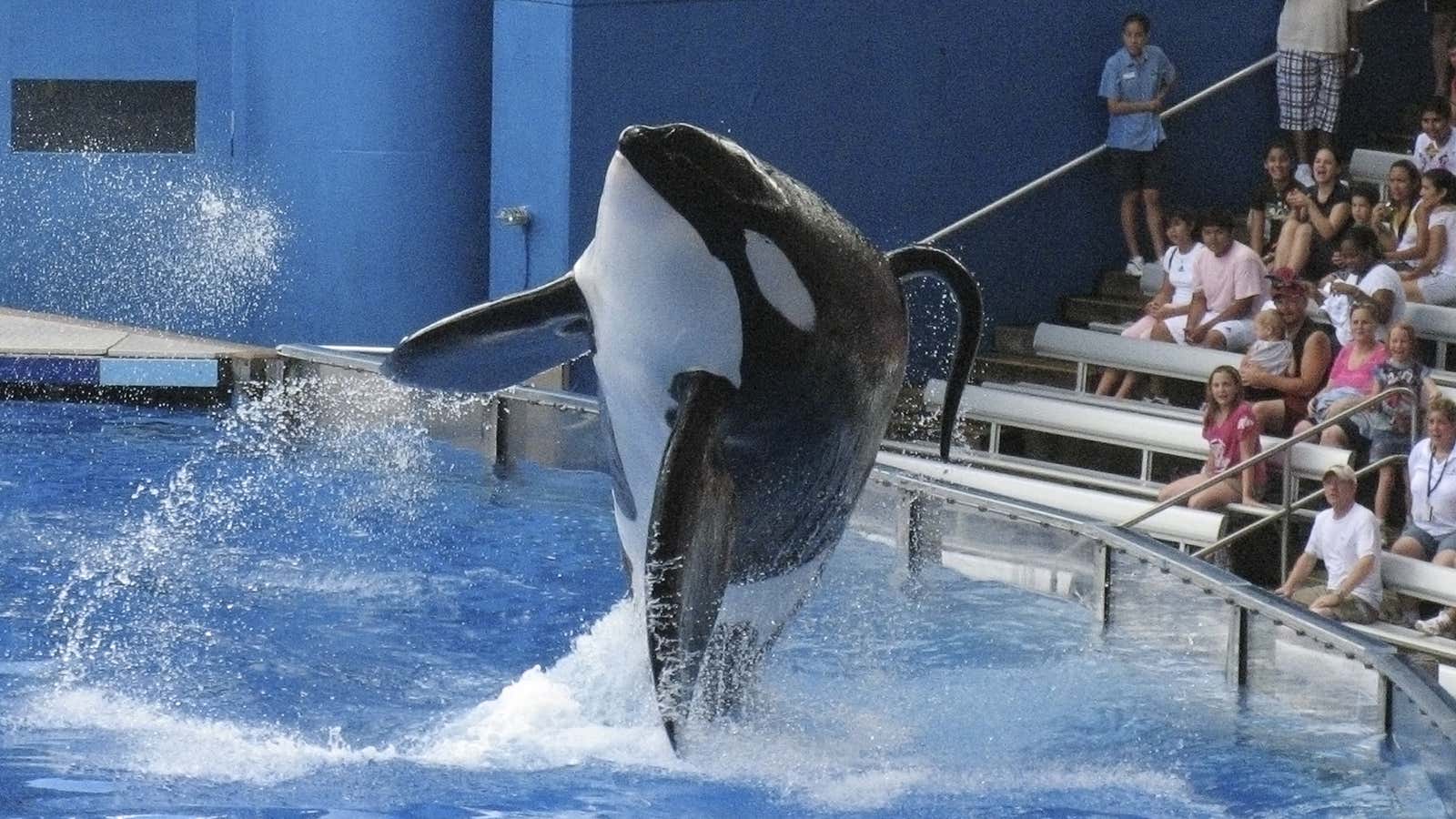When the Sochi Olympic Games kick off on Friday, one thing will be missing. Well, two. A female orca named Narnia and an unnamed juvenile male—both of them recently captured in the wild—were reported to be debuting at the upcoming the Olympic opening ceremonies. As of last November, the two killer whales, as orcas are also known, were supposedly in training near Moscow. But since then, there’s been no mention of them.
Maybe that’s because they’ve been sent to China. According to Erich Hoyt, an orca researcher, Russia exported them to its southern neighbor, where they’re rumored to be headed to the just-opened Ocean Kingdom (link in Chinese), the $3.3-billion marine theme park on Hengqin island in southern China. A representative from Chime-Long Group, which owns Ocean Kingdom, declined to answer questions about the killer whales, according to a must-read feature (paywall) in the South China Morning Post. However, the SCMP notes that a French former orca trainer at Loro Parque, a Spanish marine theme park, is listed as the head animal trainer.
Narnia was reportedly caught in the Sea of Okhotsk in 2012; her supposed companion and several other killer whales are thought to be among several captured there in Aug. and Oct. 2013, says Hoyt. If the rumors are true, the two killer whales be the first ever to perform on the mainland.
But they probably won’t be the last.
“It seems like China is becoming, or has become, a primary source of the demand for belugas, dolphins, and orcas alike,” Courtney Vail, of the Whale And Dolphin Conservation, told Outside Online. “Twenty-four dolphins were exported from Japan to China in 2012, and CITES trade reports suggest over 60 wild-caught belugas were exported from Russia to China between 2008 and 2010 alone.”
The reason for this trend? Partly that there’s little demand elsewhere. Only 12 of the 44 killer whales in aquariums worldwide were born in the wild, reports Outside Online. SeaWorld, which owns around half of the world’s captive killer whales, says it doesn’t need to import wild-caught whales due to the success of its breeding program.
Tom Mehrmann, CEO of Ocean Park in Hong Kong, told the the SCMP that if Ocean Kingdom had acquired killer whales, it had likely done so without complying with industry standards that require a population study to ensure the that orca numbers wouldn’t be harmed. (A lack of animal protection laws or channels for public accountability in China makes protesting animal treatment difficult.)
Elsewhere in the world, though, public outrage about the use of killer whales in marine parks has been piqued by the popular American documentary Blackfish. The film, which explores the circumstances surrounding the 2010 mauling death of a SeaWorld trainer, highlights the brutality of how orcas are seized in the wild, as well as the claustrophobic conditions under which they’re housed.
“When they’re captured, their families are just ripped apart,” Paul Spong, a whale resarcher, told CBC News. “And when they’re put into captivity, they’re really subject to sensory deprivation for years and years and years—it’s hugely damaging to them.”
